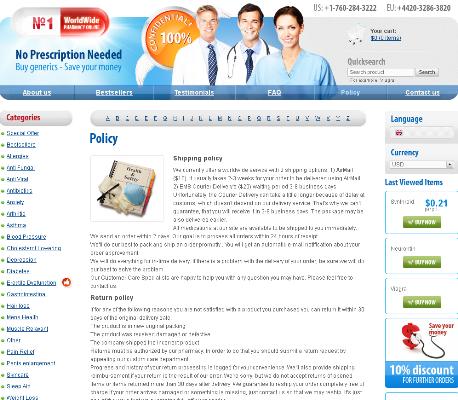Skincare Routine for Isotretinoin Patients
Understanding How Isotretinoin Changes Your Skin
Isotretinoin, often hailed as a game-changer for severe acne, affects skin in ways you might not anticipate before starting treatment. Behind the scenes, this powerful medication shrinks oil glands, dramatically reducing sebum production. That’s why many experience drier, more delicate skin after just a few weeks.
This sudden decrease in oil means your usual skin routine may no longer work—everything from texture to sensitivity can shift dramatically. Common side effects like flakiness, tightness, or even increased redness are driven by your skin’s struggle to adapt to this new, less oily reality.
A thoughtful, adapted routine becomes crucial. Paying close attention to your skin and making gentle, hydrating selections in your products can help minimize discomfort while preserving healing progress.
| Skin Change | Common Experience | Why It Happens |
|---|---|---|
| Dryness | Flaky, tight skin | Reduced oil production |
| Increased Sensitivity | Redness, irritation | Thinner top skin layer |
| Fragility | Easy irritation | Weakened moisture barrier |
Gentle Cleansing: Choosing the Right Face Wash

When you begin an isotretinoin journey, your skin becomes noticeably more sensitive and prone to dryness. A gentle cleansing routine is essential, as harsh formulas can strip away natural oils and exacerbate irritation. Instead, look for fragrance-free, hydrating cleansers with minimal ingredients to maintain skin’s delicate barrier. Cream or lotion-based cleansers are especially effective, providing a soft touch while lifting away impurities.
Investing in a non-foaming face wash can make all the difference; foaming agents often cause unnecessary dryness and discomfort. Cleansing just once or twice a day is sufficient—overwashing can worsen sensitivity. Lukewarm water helps prevent the further loss of moisture, and patting the face dry with a soft towel preserves hydration. Prioritizing calm, simple products will make your isotretinoin treatment far more comfortable.
Hydration Heroes: Moisturizers for Sensitive Skin
When embarking on isotretinoin treatment, your skin’s needs shift dramatically. It becomes not only prone to dryness but also exceptionally sensitive. At this stage, selecting the right moisturizer is crucial for restoring comfort and protecting the skin’s evolving barrier.
Look for moisturizers labeled “non-comedogenic” and “fragrance-free”—these ensure nourishment without triggering breakouts or irritation. Ingredients such as ceramides, hyaluronic acid, and glycerin deliver essential hydration and help the skin retain moisture.
Layering your moisturizer generously, especially after cleansing while the skin is still damp, enhances absorption. By prioritizing gentle, replenishing formulas, you’ll minimize discomfort and maintain skin resilience throughout your isotretinoin journey.
Essential Sun Protection during Isotretinoin Treatment

Stepping outside while on isotretinoin can feel like braving new terrain—your skin is more fragile, and the sun’s rays become a surprising adversary. Ultraviolet exposure now leads to faster burning, redness, and sometimes permanent pigmentation. This makes daily sun protection a non-negotiable part of your routine, even on cloudy days or brief errands.
Opt for a broad-spectrum sunscreen with at least SPF 30, and choose products labeled “gentle,” “non-comedogenic,” and “fragrance-free” to avoid irritation. Remember to reapply every two hours, especially if you’re sweating or swimming. Wide-brimmed hats and sunglasses add an extra layer of defense, keeping your skin safe and comfortable.
Managing Chapped Lips and Dry Eyes Effectively
Dry lips and eyes are almost universal side effects for isotretinoin users. Carrying a nourishing lip balm, such as one with lanolin or petrolatum, helps seal in moisture throughout the day. At night, opt for a thicker balm to protect lips as they repair.
For eye comfort, preservative-free artificial tears can relieve dryness without causing irritation. Avoid wearing contact lenses during flares. Always keep these essentials handy to prevent uncomfortable dryness from interfering with your daily routine.
| Tip | Recommended Product Type |
|---|---|
| Lip Care | Petrolatum or lanolin-based balm |
| Eye Care | Preservative-free artificial tears |
What to Avoid: Ingredients and Habits to Skip
Navigating skincare during isotretinoin therapy is all about minimizing potential irritants and understanding your skin’s heightened sensitivity. While it may be tempting to reach for your usual exfoliating scrubs or products containing retinoids, benzoyl peroxide, or alpha hydroxy acids (AHAs), these can severely intensify dryness and irritation. Even alcohol-based toners and those with strong fragrances can strip the delicate barrier your skin is working hard to rebuild, leading to increased redness and discomfort.
Beyond ingredients, daily habits are just as influential. Hot showers, frequent face washing, or even vigorously towel-drying can exacerbate sensitivity, leaving your skin more vulnerable. Instead, opt for short, lukewarm showers and gently pat your face dry. Resist the urge to pick at flaking skin or blemishes, as your healing process takes patience and extra TLC.
<

